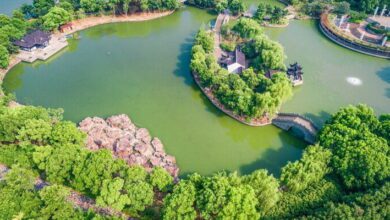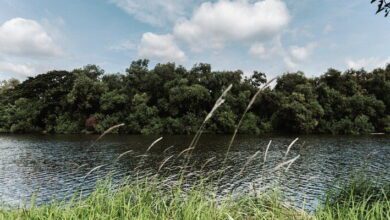Freshwater Ecology MCQs with Answers

Welcome to the Freshwater Ecology MCQs with Answers. In this post, we have shared Freshwater Ecology Online Test for different competitive exams. Find practice Freshwater Ecology Practice Questions with answers in Biology Tests exams here. Each question offers a chance to enhance your knowledge regarding Freshwater Ecology.
| Freshwater ecology concerns the relationship of organisms to their environment in aquatic ecosystems, or lakes, rivers, streams, and ponds, as well as in wetlands. This area of study is critical in understanding biodiversity, ecosystem services, and impacts of environmental changes on aquatic habitats. Freshwater ecosystems are extremely diverse. Organisms present here range from microscopic plankton to the large fish and amphibians. Knowing the dynamics in freshwater ecology better will help societies manage and conserve those providers of critical services like water purification, flood regulation, etc., ecosystems. Biotic interactions, that is predators, competitors, and symbionts, are a very robust feature of freshwater ecology. Biotic influences basically structure communities and act to determine species distribution and abundance. For example, predation by fish might control populations of other small organisms so that an ecological balance can be re-established. Another key function is the nutrient cycle, referring to transporting and transforming nutrients, such as nitrogen and phosphorus, within an ecosystem. These nutrients are a critical resource for primary producers, like algae and aquatic plants, whose growth underlies the food web. Other types of impacts involve how human activities such as pollution, habitat destruction and climate affect the aquatic ecosystems. Eutrophication where excess nutrients in the water over-enrich water plants creates harm algal blooms and oxygen depletion that threatens aquatic life. Freshwater ecological conservation seeks to conserve or restore ecosystems in ways that will ensure the ecosystems continue providing important services while supporting biodiversity. Thus, management practices are informed by fresh insights into freshwater ecological principles and complex environmental interactions. |
Freshwater Ecology Online Quiz
By presenting 3 options to choose from, Freshwater Ecology Quiz which cover a wide range of topics and levels of difficulty, making them adaptable to various learning objectives and preferences. You will have to read all the given answers of Freshwater Ecology Questions and Answers and click over the correct answer.
- Test Name: Freshwater Ecology MCQ Quiz Practice
- Type: Quiz Test
- Total Questions: 40
- Total Marks: 40
- Time: 40 minutes
Note: Answer of the questions will change randomly each time you start the test. Practice each quiz test at least 3 times if you want to secure High Marks. Once you are finished, click the View Results button. If any answer looks wrong to you in Quizzes. simply click on question and comment below that question. so that we can update the answer in the quiz section.
Download Certificate of Quiz Freshwater Ecology
On the end of Quiz, you can download the certificate of the quiz if you got more than 70% marks. Add a certificate to your job application or social profile (like LinkedIn) and get more job offers.
Download Freshwater Ecology MCQs with Answers Free PDF
You can also download 100 Freshwater Ecology Questions with Answers free PDF from the link provided below. To Download file in PDF click on the arrow sign at the top right corner.
If you are interested to enhance your knowledge regarding English, Physics, Chemistry, Computer, and Biology please click on the link of each category, you will be redirected to dedicated website for each category.




